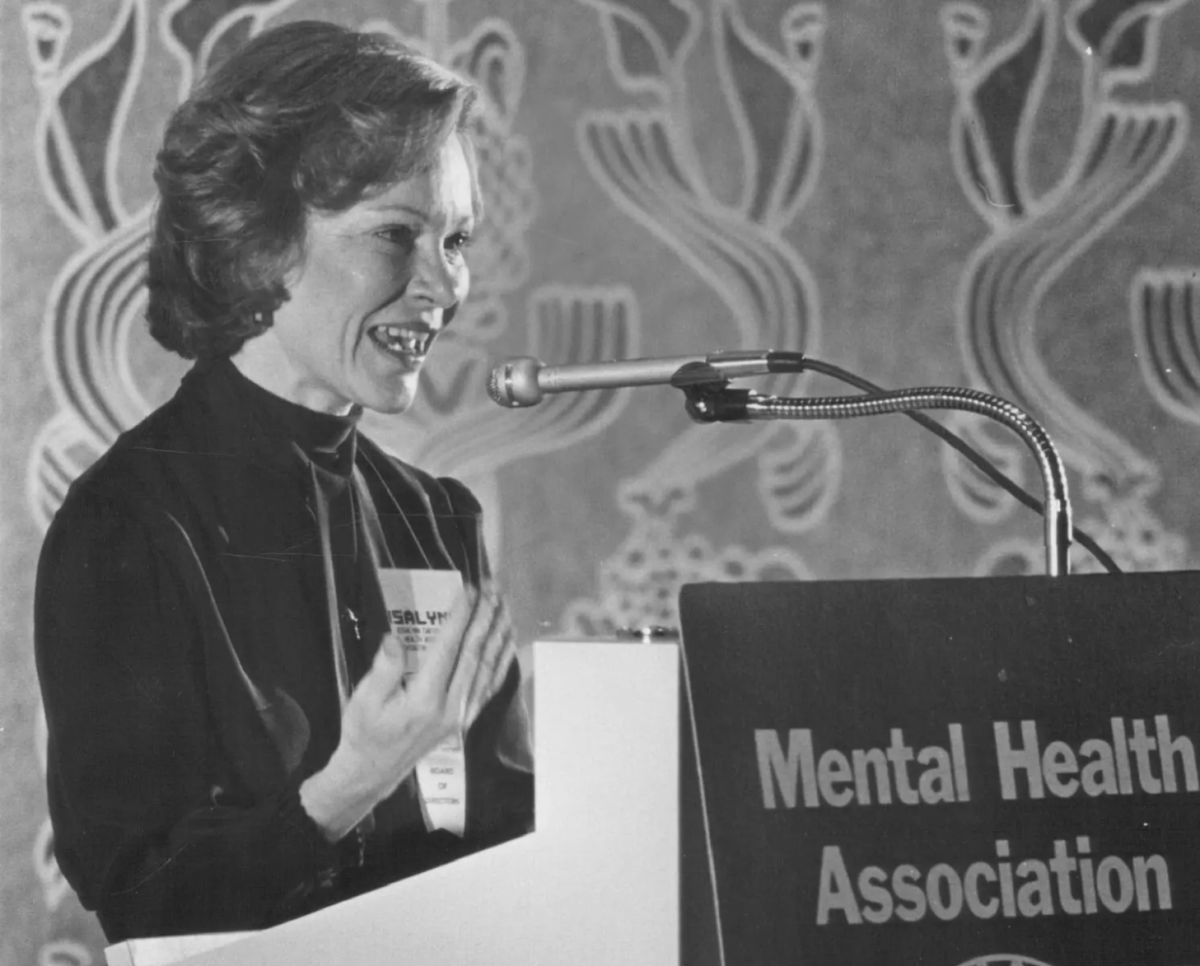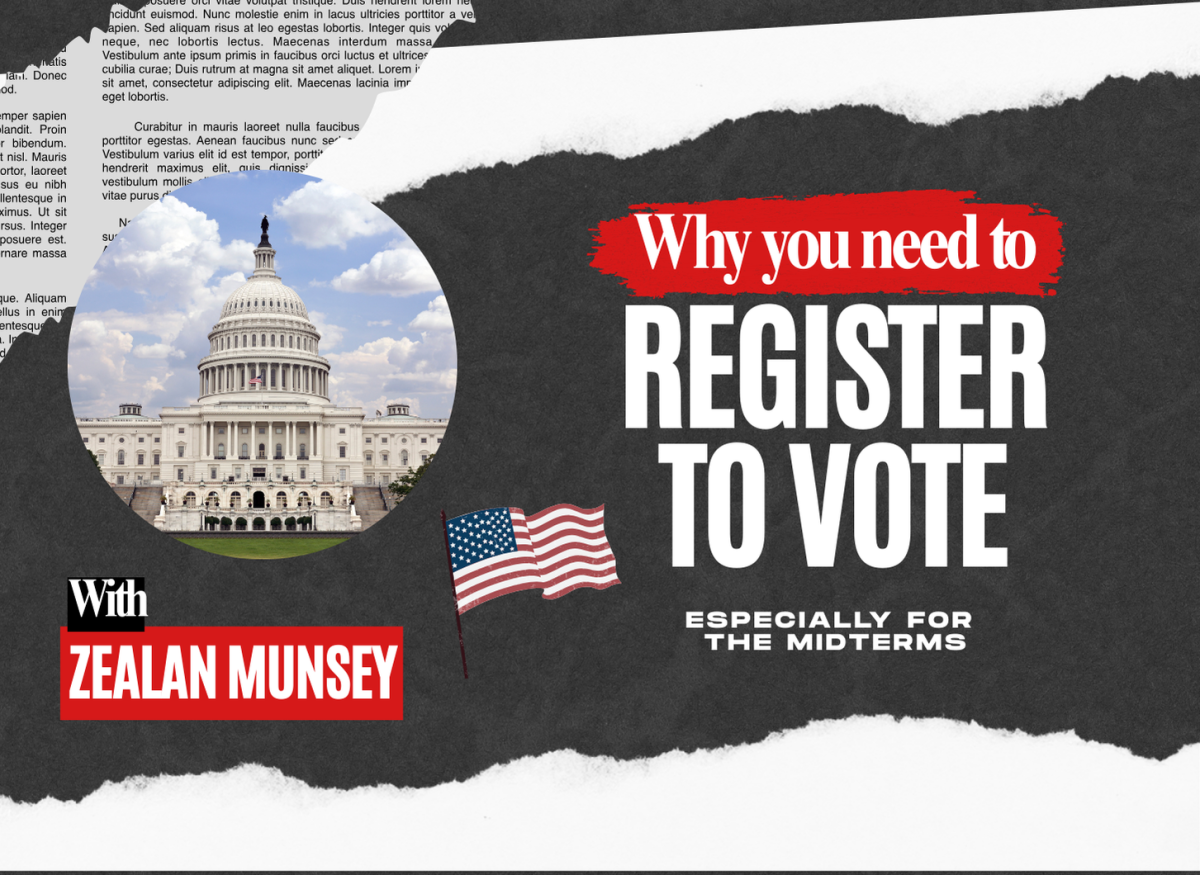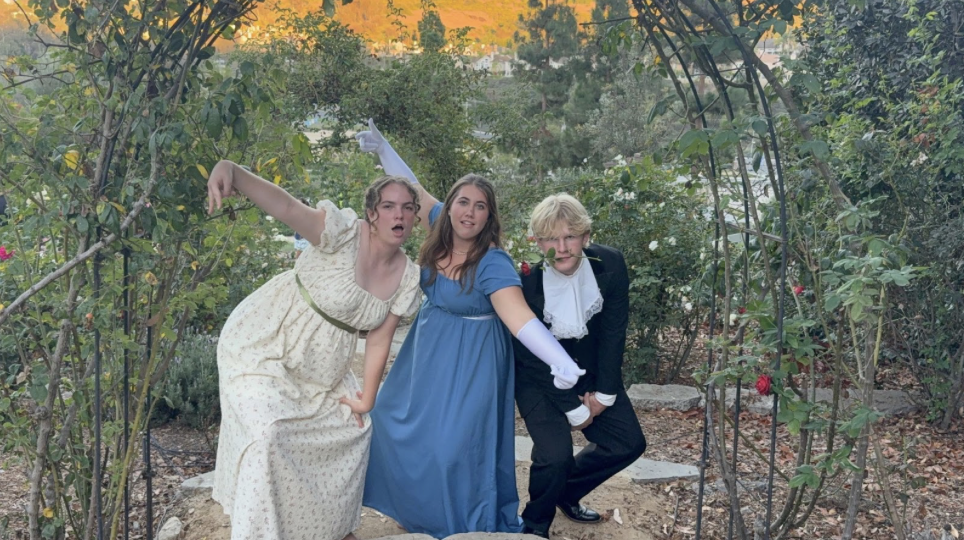On Sunday, November 19, former First Lady Rosalynn Carter passed away at the age of 96. The most politically active First Lady since Eleanor Roosevelt, Rosalynn Carter reshaped the role from political wife to political partner. Former First Lady Carter advocated for many causes throughout her life, but mental health was the one closest to her heart. After meeting her husband, Jimmy Carter, at 18, the two became one, so much so that Mr. Carter would call her “an almost equal extension of myself.” A strong drive guided them in their work, a drive that stemmed from their Christian faith and occasionally stubborn nature.
As First Lady of the United States, Rosalynn Carter did the unthinkable. Although her role was unelected, unpaid, and often underappreciated, Mrs. Carter broke the boundaries and forever transformed the role of the First Lady. When reflecting on the criticism she faced, Mrs. Carter states, “I didn’t let it stop me.” Mrs. Carter did not want to simply greet foreign dignitaries and pour the tea at state dinners. Before Rosalynn Carter, the First Lady was rarely given the chance to enact change. Mrs. Carter formalized the modern First Lady’s office, complete with a Chief of Staff, and gave the women of the White House a chance to seize the opportunities before them. Mrs. Carter worked alongside her husband as a collaborator in his presidential endeavors. She did not sit by quietly as her husband made decisions; instead, she often offered advice and even assisted in critical meetings.
Mrs. Carter entered the White House at the height of the women’s rights movement. Empowered by the women fighting for their rights, she lobbied for the Equal Rights Amendment and advocated for the expansion of women’s role in politics. Mrs. Carter’s efforts pushed Congress to recognize the office of First Lady as a federal position with a federally funded staff.
Mrs. Carter did not create the powers of the First Lady; she uncovered them. At the root, Rosalynn Carter was an activist who paved the path for future First Ladies and gave them the opportunity to use their role to better the world around them.
However, Mrs. Carter’s activism did not end with her husband’s failed re-election campaign. After leaving the White House, the Carters embarked on the most active post-presidency in American history. Worldwide, they displayed active support for human rights, democracy, and the expansion of healthcare. At home, they were deeply involved with Habitat for Humanity and participated regularly in the home-building process.
Although 50 years ago, people avoided discussing mental health, Mrs. Carter did not shy away from its discussion. As a champion of the Mental Health Systems Act of 1980, Mrs. Carter advocated for equal access to not only physical healthcare but also mental healthcare. Under President Reagan, the Mental Health Systems Act was repealed; however, Mrs. Carter did not let this setback stop her. In her book about mental health, Within Our Reach, she persisted in her goal of bettering the American mental health system. She did not see it as a lost cause; instead, she saw it as a problem that could be solved and was “within our reach.” The Carters established the renowned Carter Center, a non-profit that takes action to “wage peace, fight disease, and build hope.” The Center’s mental health program often hosted Mrs. Carter, who would share stories of her struggles getting politicians to work towards ending the crisis. Mrs. Carter’s recognition of the stigma surrounding mental health set her apart and encouraged her to stay persistent in her efforts.
The fruits of Mrs. Carter’s efforts are apparent today. By not shying away from the topic of mental health, she opened doors for countless new opportunities for those struggling with mental illness. Today, mental health is a far more widely discussed topic. We have come a long way thanks to Mrs. Carter’s efforts; however, we still have a long way to go.
Mrs. Carter’s legacy is one of advocacy, hope, and change. By reshaping the role of the First Lady, she opened doors for women in the White House and worldwide. Mrs. Carter’s fearless fight for her beliefs has led to significant change, and her legacy continues to brighten the world today.
Sources:














